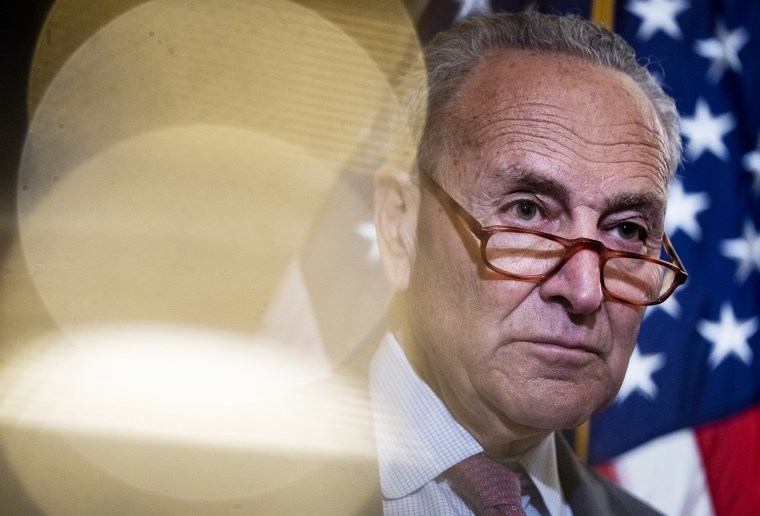Just 10 days after President Joe Biden’s inauguration, NBC News reported that the new White House team and Senate Democrats were “embarking on a mission to shape the courts after Republicans overhauled them in the last four years.”
Updating our earlier coverage, it looks like that mission is going pretty well for the party. The Washington Post reported this week:
While some major pieces of President Biden’s legislative agenda remain stalled, he has enjoyed more success than recent predecessors in winning Senate confirmation of judicial nominees. In a statement Wednesday, Senate Majority Leader Charles E. Schumer (D-N.Y.) noted that last week, his chamber confirmed the 66th of Biden’s judicial nominees to a lifetime appointment on the bench.
Part of Schumer’s boast was rooted in the diversity of the judicial nominees the Biden White House has chosen and Senate Democrats have confirmed: The Senate majority leader’s statement noted that 75 percent of the judges confirmed since last year are women, and nearly two-thirds are people of color. Biden, more so than any modern president, has also prioritized nominations for public defenders and civil rights attorneys.
The other part has to do with speed: No president of either party has seen this many judicial confirmations at this point in his term since John F. Kennedy’s term six decades ago.
In fact, across the judiciary — district courts, circuit courts, and the Supreme Court — the Senate has now confirmed 66 of Biden’s nominees. At this same point in Donald Trump’s term, the total was 39. In Barack Obama’s first term, it was 26.
As we’ve discussed on several occasions, Republicans in the Trump era prioritized judicial nominees above almost every other consideration. The campaign was as relentless as it was effective: The former president managed to appoint about 230 judges to the federal courts. That’s not as many as his recent two-term predecessors, but it was a striking tally for a failed one-term president who never won the popular vote.
With this in mind, the Biden White House has emphasized judicial nominees to a degree without modern precedent, and the narrow Democratic majority in the Senate appears to have taken the matter seriously.
There are, however, some caveats. Of Biden’s 66 jurists, only 16 are judges on the circuit appellate courts, which Republicans prioritized far more than lower district courts. Indeed, while Biden’s overall total easily surpasses Trump’s total at this point into their respective presidencies, Trump actually leads in overall number of circuit court confirmations, 17 to 16, suggesting an area of emphasis for Democrats in the coming months.
What’s more, I wrote “coming months,” and not “coming years,” because it appears Republicans are well positioned to reclaim the Senate majority, at which point all judicial confirmations will effectively end. In fact, the reason Biden’s total is so much higher than other recent presidents is that his modern predecessors and their partisan allies weren’t racing against an unfriendly calendar.
As for the near future, there are currently 73 vacancies on the federal bench — more if we include the Court of International Trade and the Court of Federal Claims — and that number is likely to grow as sitting judges retire and take senior status. Democratic Sen. Sheldon Whitehouse of Rhode Island, a senior member of the Judiciary Committee, said last year that filling every vacancy by the end of 2022 is his party’s “very prudent goal.”
That’s an ambitious target, which will require a concerted effort on the part of Democratic leaders. Watch this space.

